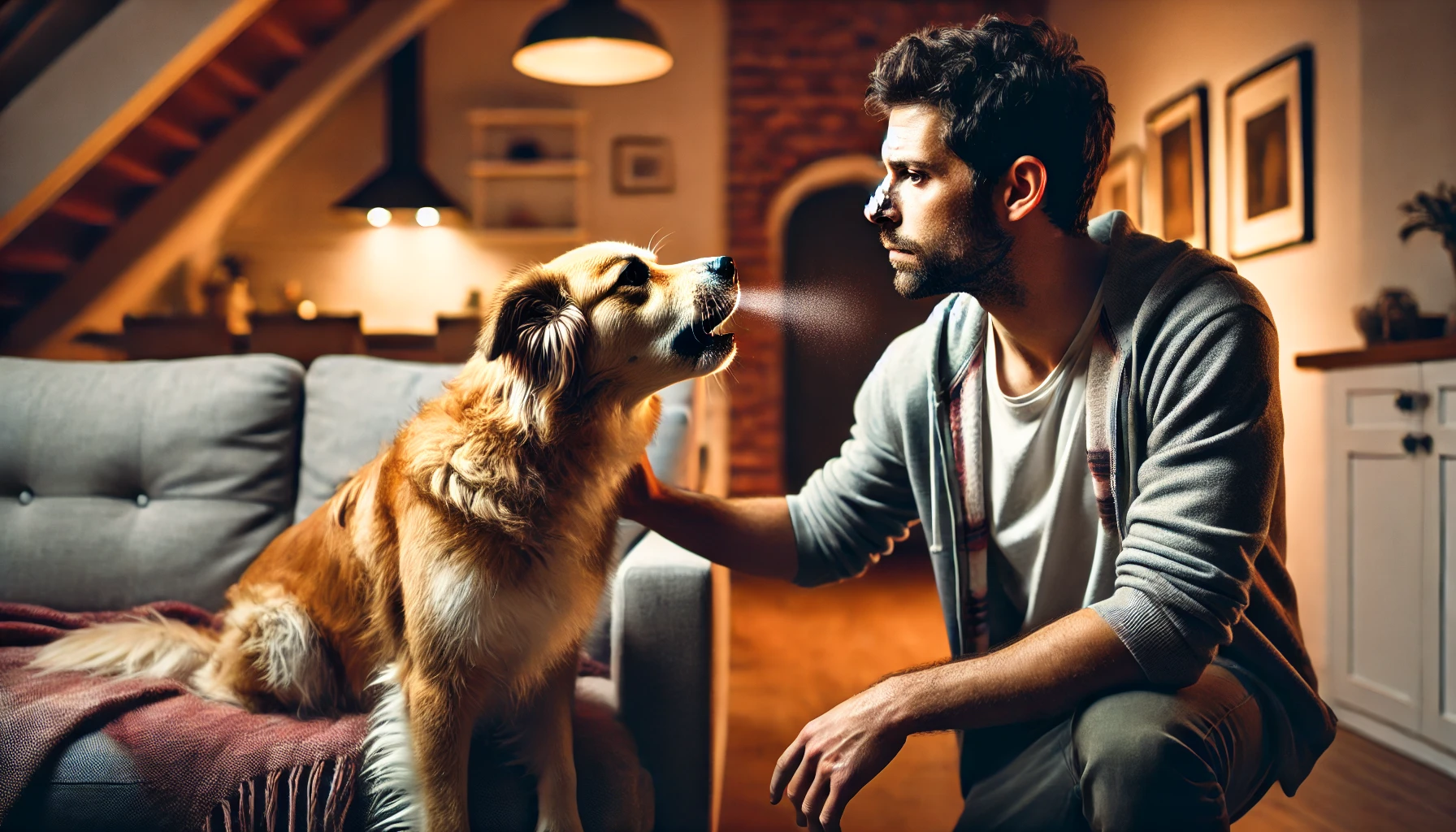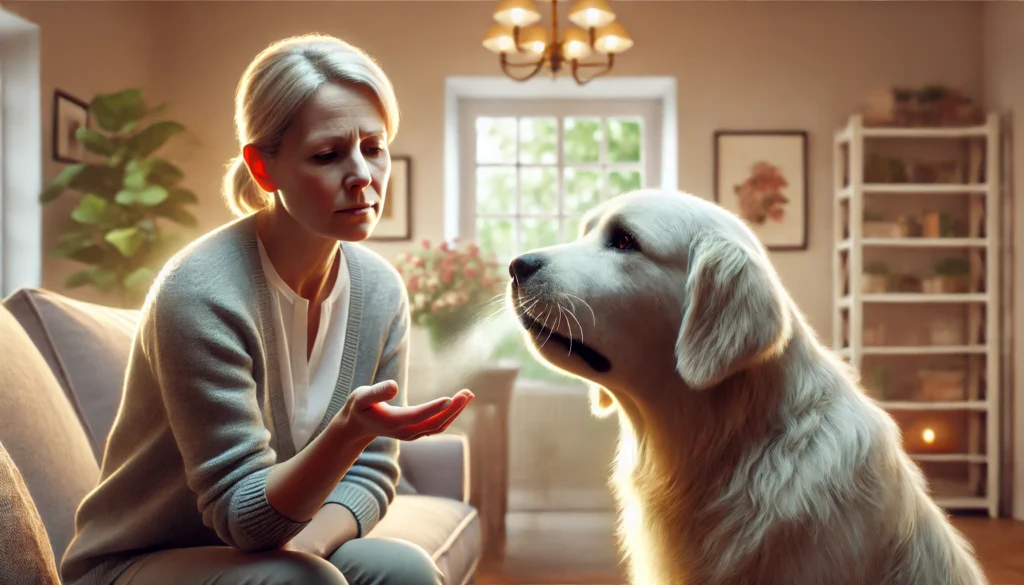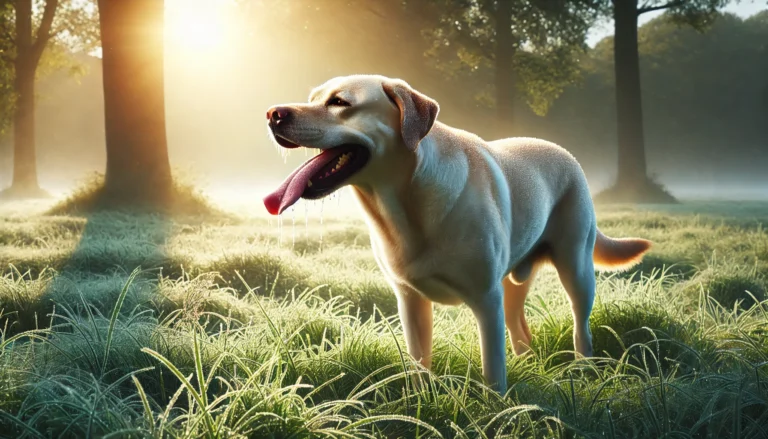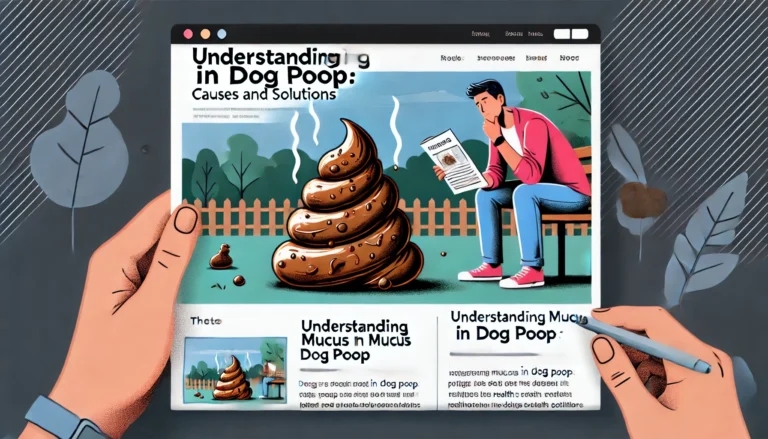dog sneezing a lot? Interesting Facts to know about

know why is my dog sneezing so much?
When your dog sneezing frequently, it can be a cause for concern as well as a source of curiosity. Sneezing in dogs isn’t uncommon, but when your dog starts sneezing a lot, it might indicate underlying issues ranging from minor irritations to more serious medical conditions. This article delves into the reasons behind excessive sneezing in dogs, how to distinguish between harmless sneezes and those warranting a vet visit, and what you can do to help your furry friend.

Understanding Sneezing in Dogs
Sneezing is a reflex action that dogs use to expel irritants from their nose and throat. It’s a protective response to triggers like dust, allergens, or nasal blockages. While occasional sneezing is normal, frequent sneezing might be a sign of something more serious.
Common Causes of Frequent dog sneezing
- Allergies: Like humans, dogs can suffer from allergies. Common allergens include dust, pollen, mold, and ingredients in their food. Allergic reactions can cause the mucous membranes in the nose to become inflamed, leading to sneezing.
- Foreign Bodies: Grass, seeds, small toys, or pieces of food can get stuck in your dog’s nasal passages. Sneezing is a natural reaction to expel these intruders.
- Dental Problems: Issues like tooth abscesses or gum disease can cause sneezing if the roots of a dog’s teeth become infected and affect the nasal passages.
- Infections: Respiratory infections caused by bacteria or viruses, such as the canine influenza virus or the Bordetella bacterium, can lead to sneezing. Fungal infections, though less common, can also cause nasal discharge and sneezing.
- Nasal Tumors: Although rare, nasal tumors can cause persistent sneezing. These are more common in older dogs and certain breeds like basset hounds and collies.
- Environmental Irritants: Perfumes, household cleaning agents, cigarette smoke, and pest sprays can irritate your dog’s nose, leading to sneezing.
Less Common Causes of dog sneezing
- Nasal Mites: Tiny parasites can lodge in a dog’s nasal passages and cause intense sneezing and nasal discharge.
- Breed-Specific Anatomical Issues: Brachycephalic breeds like Bulldogs, Pugs, and Boxers with flat faces often have elongated soft palates that can cause sneezing.
Diagnosing the Cause of dog sneezing
Identifying the reason behind your dog’s sneezing involves observing other symptoms and possibly consulting a veterinarian. Symptoms that accompany sneezing, such as nasal discharge, bloody noses, or behavioral changes, are critical in diagnosing the cause.
When to Visit the Vet
You should consider taking your dog to the vet if:
- Sneezing is frequent and persistent.
- It’s accompanied by discharge, especially if it’s bloody or pus-like.
- Your dog appears to be in discomfort or distress.
- There are signs of an allergic reaction, such as swelling or hives.
- Sneezing disrupts normal activities like eating or sleeping.
What to Expect During the Vet Visit
Your vet may perform the following:
- Physical Examination: Checking for foreign bodies, signs of infections, or dental issues.
- Nasal Swab: To test for infections or foreign bodies.
- Blood Tests: To identify infections, allergies, or other medical issues.
- X-rays or CT scans: These can help detect tumors, deep-seated infections, or other problems in the nasal cavities.
Treatment Options for dog sneezing
Treatment depends on the underlying cause of the sneezing:
- Allergies: Antihistamines or corticosteroids to reduce inflammation.
- Foreign Bodies: Removal under anesthesia.
- Dental Issues: Dental cleaning or surgical intervention.
- Infections: Antibiotics or antifungals depending on the cause.
- Nasal Mites: Specific antiparasitic treatments.
- Environmental Factors: Removing or reducing exposure to irritants.
do you know?
Strawberries can offer a variety of health benefits to your dog, from improving their immune system to adding a tasty variety to their diet. Just remember to introduce any new food slowly and monitor how your dog reacts to it. With the right precautions, strawberries can be a wonderful, tasty treat for your furry friend!
Home Care and Prevention for dog sneezing
- Keep your home clean: Regularly clean bedding and toys to reduce dust and allergens.
- Avoid smoking around your pets: Tobacco smoke is a common irritant.
- Be mindful of chemicals: Use pet-safe cleaning products and avoid using heavy perfumes or air fresheners around your dog.
- Regular vet visits: Routine check-ups can catch dental issues or infections before they lead to sneezing.
Conclusion of dog sneezing
While sneezing can be a normal behavior for dogs, excessive sneezing may indicate health issues that need attention. Understanding the possible causes and knowing when to seek veterinary help are key to ensuring your dog stays healthy and happy. Remember, timely diagnosis and appropriate treatment can make a significant difference in the quality of life of your pet.
What does it mean when a dog sneezes at you?
It can be a playful gesture or a sign of mild irritation in their nose.
Are dogs sick when they sneeze?
Not always. Occasional sneezing is normal, but frequent sneezing could indicate illness.
Should I be concerned if my dog is sneezing a lot?
Yes, frequent sneezing can be a sign of allergies, infection, or other health issues.
How do you treat a sneezing dog?
Treatment depends on the cause but may include removing allergens, medication for infections, or vet-prescribed treatments.
Does dog sneezing mean they are happy?
Sometimes. Dogs might sneeze during play as a sign of excitement.
Do dogs sneeze to show affection?
Sneezing isn’t typically a sign of affection but can occur when a dog is excited or playful around people they like.
Why do dogs sneeze on their owners?
It could be accidental while playing or sniffing around, or due to excitement.
Why does my dog kiss me after I sneeze?
It might be reacting to the noise or checking on you because the sneeze startled them.
When I touch my dog’s head, he sneezes.
This could be due to physical irritation from touching sensitive areas or allergens on your hand.
Why does my dog stare at me?
Dogs often stare at their owners to express affection, seek attention, or communicate a need.






